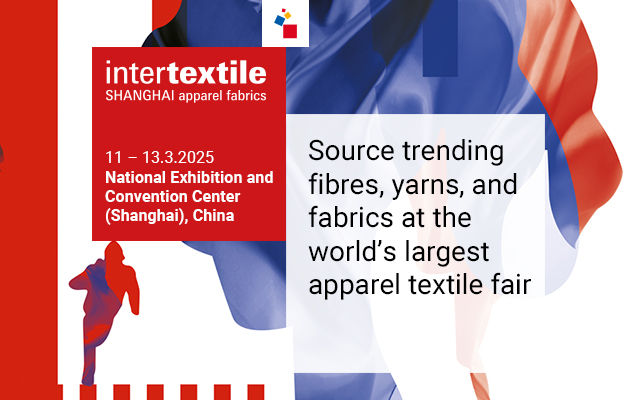At the far end of the supply chain
'Yes I'm very afraid,' admits Moussa Doumbia.'Sometimes I can't sleep.' Moussa grows cotton as a cash crop in Mali. He liesawake at night wondering whether he will be able to afford medicine to treatthe malaria of himself and his two youngest children, just three and five yearsold. The three tonnes of cotton Moussaproduces gives him an annual income of $322 less than $1 a day.
'Thecotton price is not enough for farmers to cover our needs including school feesand health,' he says.
So Moussa also farms corn, peanuts, beans and riceto feed his 10-member family. He breeds cattle, sheep and oxen which he sellsin dire emergencies. He has to rely on occasional handouts from his twobrothers who work abroad one in Cte dIvoire and the other in Spain. Andstill it's not enough. "I don't want my children to be cottonfarmers," he explains. "Because they will have no future."
Sustainability starts with farmers
Cotton farmers are the invisible foundation of the fashionindustry. Transparency and traceability are now key buzz words in the industry,yet companies rarely delve deep enough into their supply chains to have anydirect involvement with the suppliers of this raw material.
But ignoring cotton farmers ignores the future of fashion.The downward pressure of the clothing supply chain and the obsession with cheapfast fashion comes at a cost not only to farmers but to the industry itself.
Much of global cotton supply is grown by 35-50 millionsmall-scale cotton farmers in developing countries, many in least developedcountries. Like Moussa, most live below the poverty line, vulnerable to low andfluctuating prices lower than their costs of production, dependent on ginnersand middle men.
Cotton production in developing countries has a smallerenvironmental footprint and costs less. Most cotton cultivation inWest Africa is rain-fed, giving it with a much lower water footprint thanindustrialized farming. Meanwhile, it costs only US$ 30 cents to produce apound of cotton in Benin versus US$ 68 cents in the United States. Yet it isthe cotton farmers in regions like West Africa and India who suffer the mostfrom low global cotton prices and underinvestment.
This means that many cotton farmers do not have the funds to invest in improving their crops, or, like Moussa, they do not see a future for their children in cotton. We need to make sure that farmers continue to grow cotton, if consumers are to continue to buy and wear the clothes that they love.
The changing landscape of sustainable fashion
Over the past few years there has been a noticeable shift as more and more companies and fashionistas are beginning to recognise the urgent need to take greater responsibility for their social and environmental impact.
A number of global companies such as Marks & Spencer, Sainsbury's and H&M have set public targets with ambitious goals to reduce their impact by sourcing a percentage of their raw materials and notably sustainable cotton by target dates.
A number of ethical brands go even further by guaranteeing even deeper impact in their supply chains with sustainable business models. People Tree is a pioneer in Fair Trade and environmentally sustainable fashion and prides itself on opening up markets and opportunities for people who live in the developing world.
Safia Minney explains "The price tag on the fashion you buy rarely covers the real social and environmental costs. Developing countries end up competing with each other to be the world's garment factory, in what has been called a 'race to the bottom' for wages, health, safety, job security and environmental protection.
"Every time you opt to support Fair Trade or organic clothing you are helping to empower farmers, artisans and communities - and importantly putting preserve on the fashion industry to clean up its act."
In Fairtrade, we've seen a shift from mainstream companies wanting to sell Fairtrade labelled clothing, to wanting to make sustainable cotton sourcing a core part of their business. We recently launched a new business model to meet the changing ethical landscape, which allows companies to source a portion of their overall cotton on Fairtrade terms.
Ultimately sourcing sustainable cotton can allow the industry to secure supply into the future, by providing the needed farm level investment to maintain cotton crops and farmers' livelihoods to the next generation. But more companies need to come on board to really tip the balance.
Luckily, it can be in companies' interest to do so.
Attracting the ethical consumer
How do we make consumers care about sustainability? How does the industry respond to consumer demand for quicker and easier fashion whilst balancing the ethics of a sustainable supply chain where farmers and workers are paid and treated fairly?
In fact, 'fair pay for farmers and workers' is one of consumers' top concerns: 85% of consumers say this issue is important for companies and their suppliers in their dealings with poor countries, according to Fairtrade commissioned research by GlobeScan in 2011.
There is a growing body of consumers who care about ethics and are quick to reward companies for doing good. Recent studies estimate the coveted 'Aspirationals' consumer group account 2.5 billion worldwide.
As reported by Sustainable Brands, 'The 2013 Aspirational Consumer Index' by BBMG, GlobeScan and SustainAbility found that "more than one-third of consumers globally (36.4%) identify as Aspirationals, defined by their love of shopping (78%), desire for responsible consumption (92%) and their trust in brands to act in the best interest of society (58%)."
Meanwhile H&M reported recently that 47 percent of its customers are interested in more environmentally friendly products in 2013, up from 27 percent in 2012.
Values at the core of the brand
Once relegated to the fringe, growing numbers of global fashion and clothing companies are putting ethics at the core of their brands. They are setting ambitious CSR targets to reduce their environmental footprint, to benefit the people in their supply chain, and to express their values.
In Fairtrade we've seen that investing in cotton farmers allows companies to build their brand and manage risk, by demonstrating commitment to good environmental practices and fair social and labour conditions for the farmers in their supply chain.
This shift is absolutely vital, as it is often the most vulnerable like the cotton farmer at the very bottom of a complex supply chain who is at the sharp end of an increasingly demanding and cost conscious industry, and it is these vulnerable people upon which the entire fashion industry depends.
We welcome more brands to join.
Rachel Hearson is an Account Manager-Major Retailers Account at Fairtrade Foundation








Comments